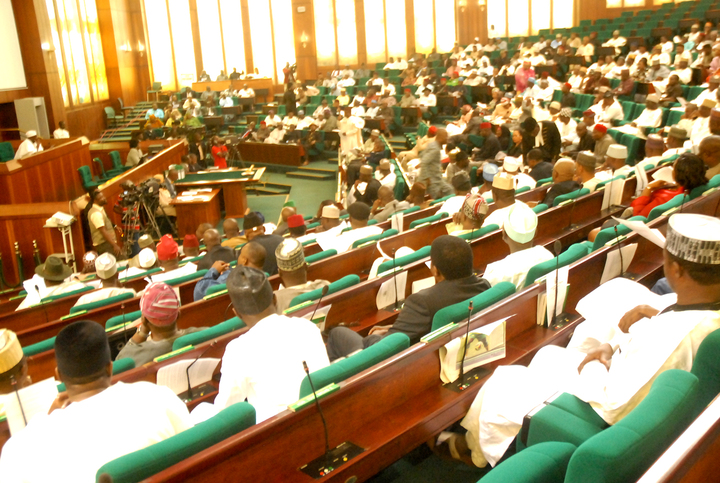The House of Representatives on Tuesday said it would probe the status of the nation’s four refineries, including their Turn Around Maintenance (TAM).
The House also resolved to investigate issues about establishment of modular refineries as proposed by the Federal Government.
It said it would constitute an ad hoc committee on the viability of continued investment of public funds on the refineries and the utilisation of daily allocation of 445,000 barrels of crude to the refineries.
This resolution followed a motion by Rep. Ibrahim Isiaka (Ondo-APC), who queried the continued importation of refined petroleum products in spite of the existence of four refineries in the country.
Moving the motion, Isiaka said “Nigeria is the 12th largest oil-producing nation in the world, with an estimated 37.2 billion barrels of crude oil deposit’’.
According to him, the nation which ranked seventh in the world in terms of gas reserves of about 187 trillion cubic feet was not among the three top countries in Africa in terms of refining capacity.
Isiaka said that Nigeria was the only member of the Organisation of Petroleum Exporting Countries (OPEC) that depended on imported refined petroleum products.
He noted that in spite of the more than 20 billion dollars spent on TAM for the refineries built to refine 445,000 barrels of crude per day, the facilities were not functioning optimally.
According to him, their average capacity utilisation stood at 11 per cent, which is the worst performance record in Africa compared to 81 per cent and 85 per cent, respectively, for Egypt and South Africa.
He said that in spite of spending 308 million dollars, 57 million dollars, 200 million dollars and over N264 billion on maintenance of the refineries, the Nigerian National Petroleum Corporation (NNPC) still sought 1.8 billion dollars for another TAM.
“Senegal runs one refinery with a 27, 000 bpd capacity; Cameroon has one with 42,600 bpd; Congo, 21,000 bpd; Niger Republic, 20, 000 bpd and Chad, 20, 000 bpd.
“Zambia runs one on 34,000 bpd; Gabon, 25,000 bpd; Algeria, 499,000 bpd; Libya, 380,000 bpd; South Africa, 626,500 bpd and Egypt, 1,102, 550 bpd,’’ he said.
Isiaka expressed concern that in spite of considerations of different reliefs, including reduction of licensing fee for new refineries from 1 million dollars to 50,000 dollars, only Aliko Dangote had put the license to use.
He added that no effort had been made to revoke the licenses given to individuals and corporate organisations to build refineries which had not yet be utilised.
The lawmaker noted that fuel was primary in the nation’s hierarchy of needs and urged the government to ensure the provision of affordable fuel because of the high level of poverty in the country.
The motion was unanimously adopted by members when it was put to a voice vote by the Deputy Speaker, Mr Yussuff Lasun, who presided at the plenary.
The House therefore resolved that an ad hoc committee should be constituted to carry out a comprehensive investigation on the TAM carried out till date.
The committee would also determine the current utilisation level of Warri, Kaduna and Port Harcourt refineries.
It was further directed to identify the private and corporate individuals that had refused to utilise the licenses (Regular and Modular) given to them.
The committee has 90 days for the assignment.

